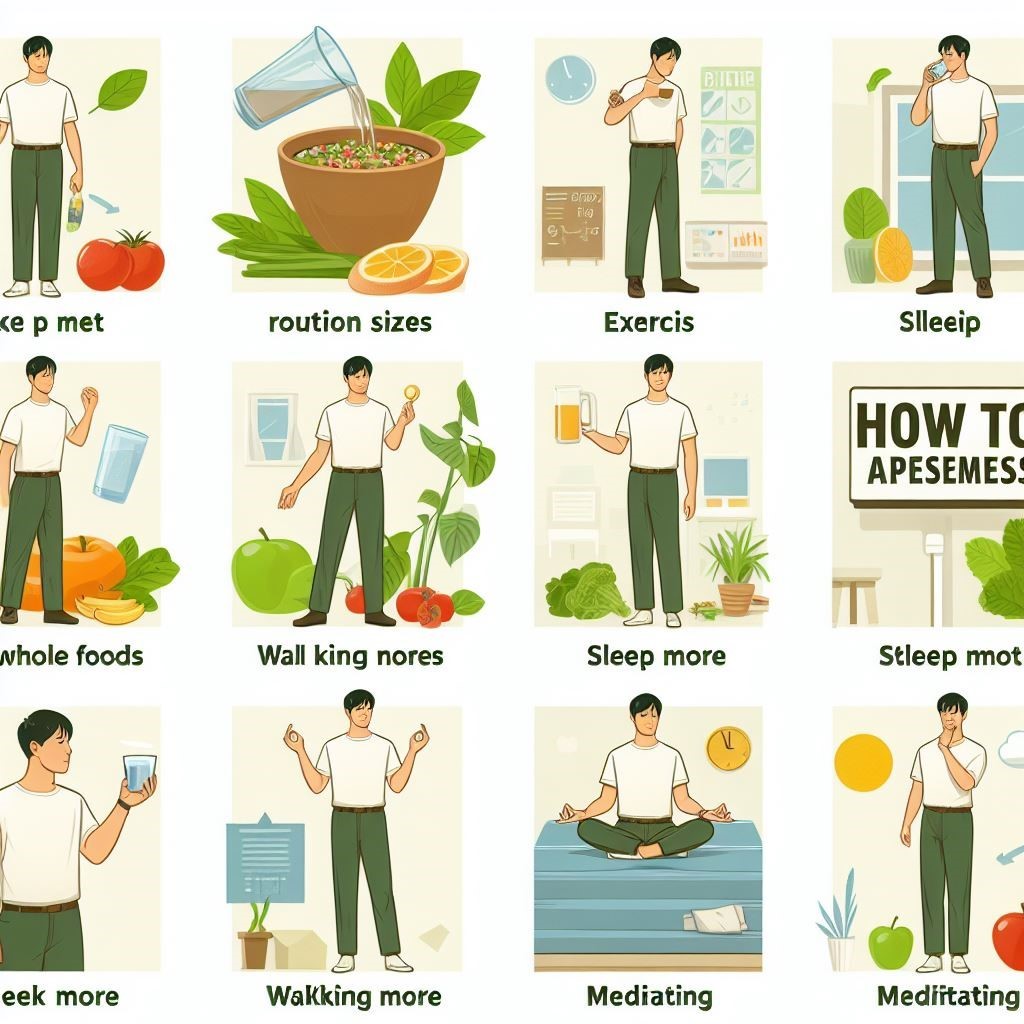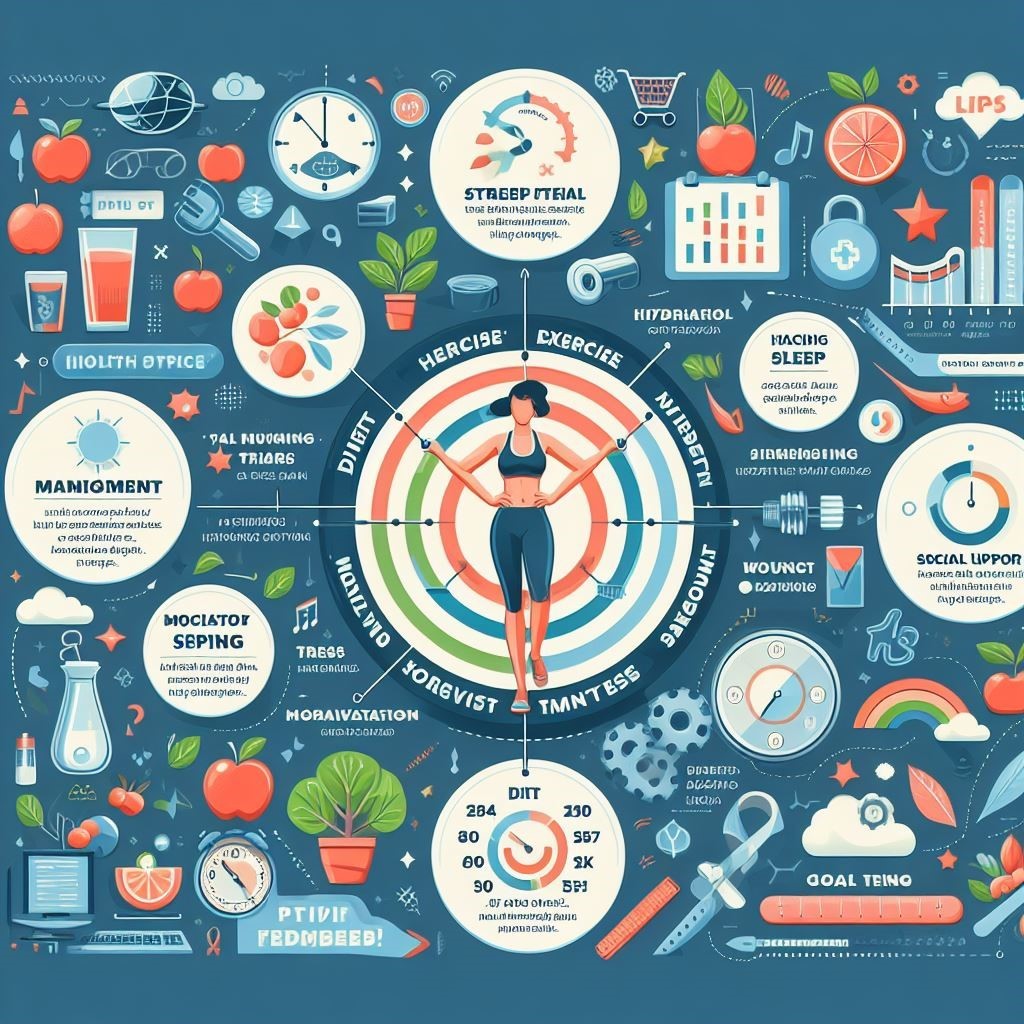Tips for Weight Loss Lifestyle: Holistic Health and Well-being
Embark on a transformational journey with these 20 tips for a weight loss lifestyle. Shift from fleeting diets to sustainable habits, ensuring long-lasting health and vitality. Dive deep into understanding the power of mindset, balanced eating, the importance of sleep, and more, as we delve into the comprehensive guide on crafting a weight loss-centric lifestyle.
Introduction to a Weight Loss Lifestyle

Embarking on a journey of weight loss isn’t merely about shedding those extra pounds. It’s a holistic approach to a healthier you. But what does it mean to adopt a weight loss lifestyle? And why is it different from the countless diets flooding the market? Let’s dive in and find out.
Why is the change to a Weight Loss Lifestyle important?
Regarding weight loss, fleeting diets might offer quick results, but are they sustainable?
The Difference between Dieting and a Lifestyle Change
Dieting often involves restrictive eating and can lead to a Yo-Yo effect, where you lose weight only to gain it back. On the other hand, a lifestyle change is about creating sustainable habits and ensuring long-term results.
How Habits Shape Our Health
Our daily habits, from what we eat to how we move, play a pivotal role in our overall health. By cultivating positive habits, we lay the foundation for lasting well-being.
Tips for Weight Loss Lifestyle

The Power of Mindset
Mindset is the driving force behind any change, including weight loss.
Developing a Positive Relationship with Food
Food isn’t the enemy. Instead, understand it as a source of nourishment. By changing our perspective on food, we can enjoy it without overindulging.
Embracing Setbacks as Opportunities
Mistakes happen. Rather than seeing them as failures, view them as learning opportunities. This shift in perception can make all the difference.
Balanced Eating: The Cornerstone of Weight Loss
Eat well, not less. The key to successful weight loss lies in balanced eating.
Understanding Macronutrients
Carbs, proteins, and fats are crucial for our bodies. Understanding their roles can help guide our food choices.
The Importance of Micronutrients in Weight Loss
Beyond macronutrients, vitamins, and minerals are vital in metabolic processes that aid weight loss.
Hydration and Its Role in Weight Management
Water isn’t just about quenching thirst. Adequate hydration can boost metabolism and curb hunger.
Exercise: A Non-Negotiable Pillar
Weight loss isn’t solely about eating right; moving your body is equally crucial.
Aerobic vs. Anaerobic Exercise: What’s Best for Weight Loss?
While aerobic exercises like running boost heart rate and burn calories, anaerobic activities like weightlifting build muscle and accelerate metabolism.
Incorporating Flexibility and Balance Training
Flexibility exercises, such as yoga, improve muscle elasticity and joint health, complementing your weight loss regimen.
Consistency Over Intensity: A Sustainable Approach
It’s not about how hard you exercise but how consistent you are. Regular, moderate routines often yield better results than sporadic, intense workouts.
Sleep and Recovery in Weight Loss
Rest is as crucial as activity for weight management.
The Connection Between Sleep and Weight Gain
Lack of sleep can elevate hunger hormones, leading to increased appetite and weight gain.
Techniques for a Restful Night’s Sleep
Establishing a bedtime routine and ensuring a conducive environment can significantly enhance sleep quality.
Stress Management and Emotional Health
Emotional well-being is intertwined with physical health.
How Stress Hinders Weight Loss
Chronic stress can lead to hormonal imbalances, resulting in gain.
Mindfulness Practices to Counter Stress
Meditation and deep breathing exercises can help alleviate stress, promoting better mental and physical health.
The Role of Accountability
Accountability can be a significant change in your weight loss journey.
Setting SMART Goals
Specific, Measurable, Achievable, Relevant, and Time-bound goals can provide clarity and direction.
Building a Supportive Community
Surrounding yourself with like-minded individuals can provide the necessary motivation and encouragement.
Incorporating Technology and Apps
In this digital age, technology can be your ally in weight loss.
Top Weight Loss Apps to Consider
Apps like MyFitnessPal and Fitbit can aid in tracking and planning.
Tracking Progress with Wearables
Fitness trackers monitor your daily activity, offering insights into your health metrics.
Myths and Facts about Weight Loss
Busting common myths can pave the way for a well-informed weight loss journey.
Conclusion about Weight Loss Lifestyle
Embracing a weight loss lifestyle is a journey of self-discovery and transformation. It’s not just about the numbers on the scale but about holistic well-being. With the right mindset, balanced eating, adequate exercise, rest, and a supportive community, achieving and maintaining your ideal weight becomes not just a goal but a way of life.
FAQs for Tips for Weight Loss Lifestyle
Here are the common questions about Weight Loss Lifestyle and the best answers for them
Why is a lifestyle change more effective than dieting for long-term weight loss?
A lifestyle change promotes sustainable habits that can be maintained in the long run, while dieting often involves short-term, restrictive measures that can lead to the Yo-Yo effect.
How can I get enough nutrients while losing weight?
Balanced eating, focusing on whole foods, and understanding the roles of macronutrients and micronutrients can help ensure adequate nutrition.
What role does sleep play in weight loss?
Sleep affects hunger hormones and metabolic processes, making it a critical factor in weight management.
Can stress prevent me from losing weight?
Yes, chronic stress can cause hormonal imbalances, hindering weight loss and even leading to weight gain.
Are all calories created equal for weight loss?
No. The calorie source can have different metabolic effects and satiety levels, whether from carbohydrates, protein, or fat.
Do I need to exercise every day to see results?
No. Consistency over time is more important than daily exercise. It’s crucial to incorporate rest days for recovery.
How can technology assist in my weight loss journey?
Apps and wearables can help track food intake and physical activity and offer insights into health metrics.
Is it essential to have a community or support system for weight loss?
While losing weight alone is possible, a supportive community can provide motivation, accountability, and encouragement, enhancing success rates.
Why is hydration so important for weight management?
Hydration aids in metabolic processes and detoxification and can help reduce feelings of hunger.
What is a SMART goal in weight loss?
A SMART goal is specific, measurable, achievable, relevant, and time-bound, offering clarity and direction in the weight loss journey.



